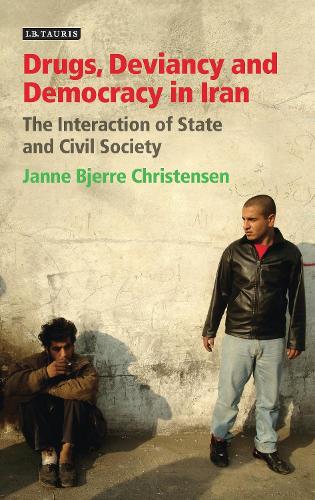
Drugs, Deviancy and Democracy in Iran: The Interaction of State and Civil Society
(Hardback)
Publishing Details
Drugs, Deviancy and Democracy in Iran: The Interaction of State and Civil Society
By (Author) Janne Bjerre Christensen
Bloomsbury Publishing PLC
I.B. Tauris
30th September 2011
United Kingdom
Classifications
Tertiary Education
Non Fiction
Drugs and alcohol: social aspects
362.290955
Physical Properties
Hardback
304
Width 138mm, Height 216mm
505g
Description
In the aftermath of the Iranian Revolution, the government of the Islamic Republic initiated a stringent anti-drug campaign that included fining addicts, imprisonment, physical punishment and even the death penalty. Despite these measures, drug use was, and is still, commonplace. Based on her most recent fieldwork, Janne Bjerre Christensen explores the mounting problems of drug use in Iran, how treatment became legalized in 1998, how local NGOs offer methadone treatment in Tehran and face continuous political challenges in doing so, and how drug use is critically discussed in Iranian media and cinema. Drugs, Deviancy and Democracy in Iran is thus a unique account of Iran's recent social and political history, drawing important conclusions about the complexity of state power, and the growing impact of civil society, vital for all those interested in Iran's history, politics and society.
Reviews
'One of the many puzzles associated with the Islamic Republic of Iran (IRI) has been the mechanisms through which the state functions and its relationship with society at large. While many studies have attempted to study the IRI state in the context of elite factionalism, economic policy, foreign policy and state use of violence, fewer studies had paid attention to state-society relationship. In this context, Janne Bjerre Christensen's study is a fresh and welcomed addition to the study of Iran after the 1979 revolution. Her choice to approach the problem is unique and intriguing, as she has chosen the state policy toward drug addiction and use in Iranian society. This book furthermore provides a useful background on the reform movement and change of policy as the reform administration of Khatami gave way to the Ahmadinejad administration. Therefore, in addition to its research value, the book is useful for those looking for an analysis of recent Iranian history.' - Maziar Behrooz, Associate Professor of History, San Francisco State University; 'Janne Bjerre Christensen's research offers a new knowledge on the work of NGOs in relation to state power in Iran. In this rigorous analysis she links politics and drugs with civic culture to present an integrated analysis of the private and public lives of different classes of Iranians and their modes of resistance to state power. This book provides an excellent analysis of post-revolutionary Iranian state and a solid analysis of the role of NGOs in Iran. Compared to the work of many other researchers on Iran, Christensen's stands out because of her focus on the concept of civil society in the Iranian context and the recognition of its potentials in the changing notions of authority. It is with no doubt a valuable addition to the current scholarship on Iran.' - Ramin Jahanbegloo, Professor of Political Science and Research Fellow in the Centre for Ethics at University of Toronto
Author Bio
Janne Bjerre Christensen holds a PhD in International Development Studies from Roskilde University, Denmark. Educated in anthropology at SOAS, University of London and the University of Copenhagen, where she also taught.
